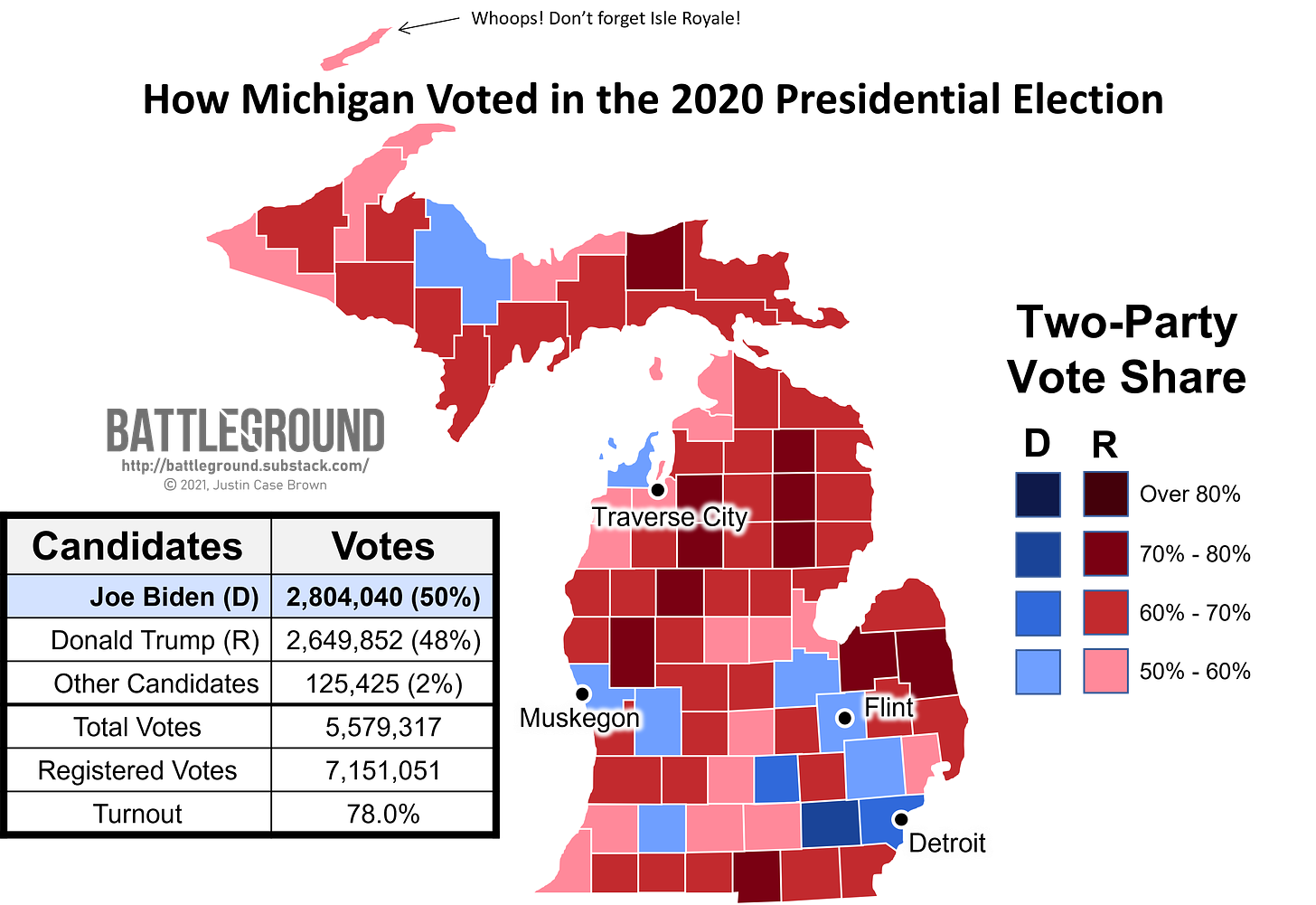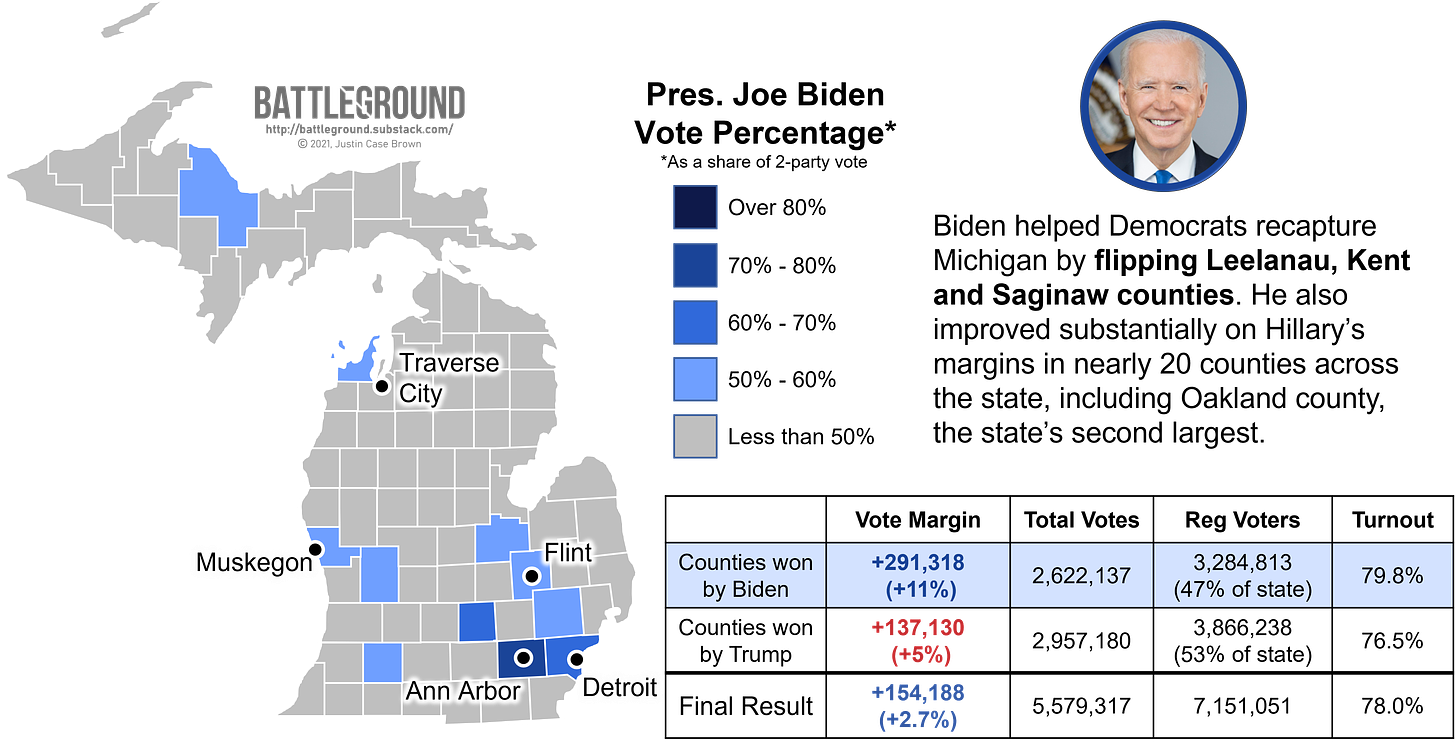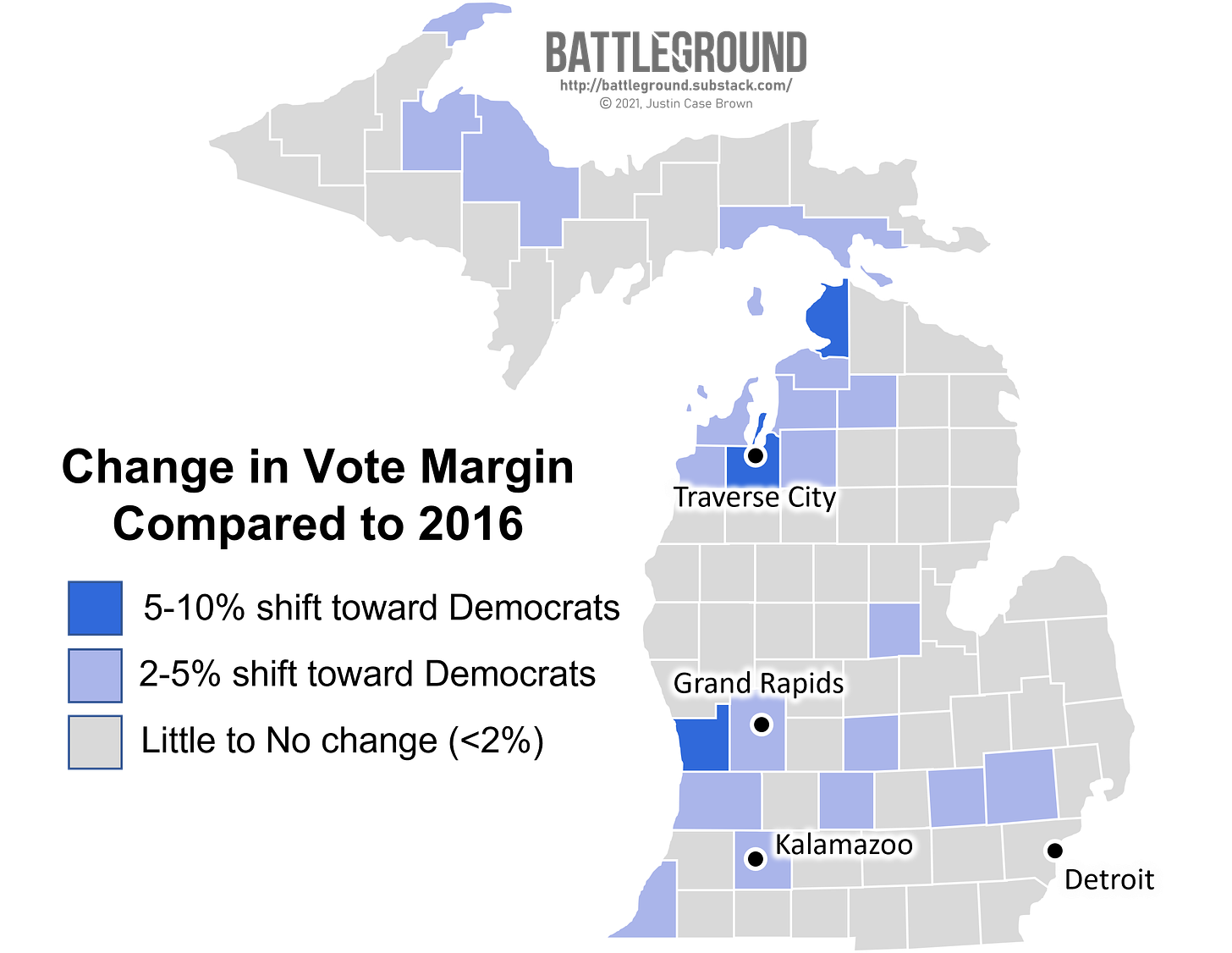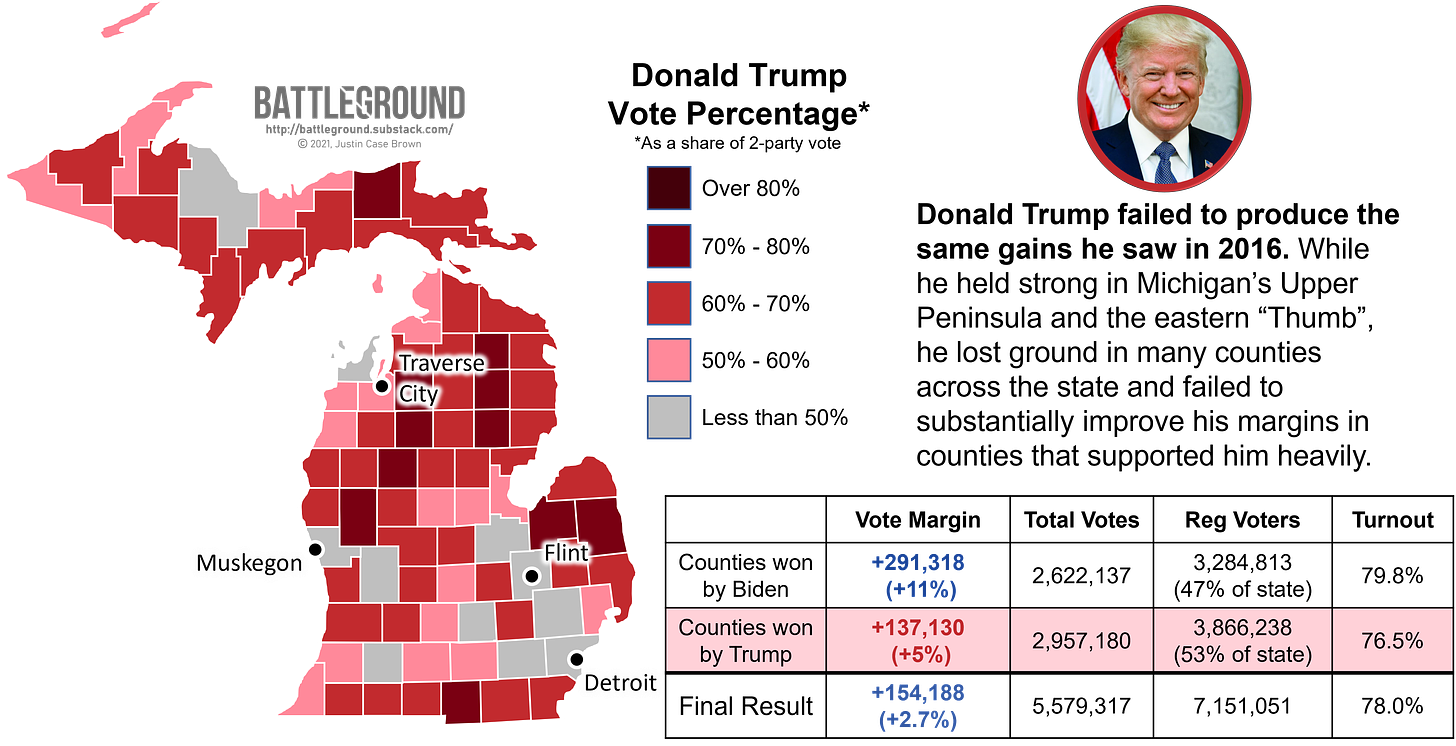Is Michigan a swing state?
If you thought Indiana was bad... ugh, Michigan please get it together...
Topline Takeaways
Michigan voters turned out after Trump’s shocking win in 2016, leading Democrats to see gains in over 20 counties across the state.
Donald Trump cemented Republicans’ hold on the Upper Peninsula, an isolated region that has flipped back and forth between parties for years.
The state has a growing problem with domestic terrorism from white supremacists groups, many of whom are animated by inflammatory conservative rhetoric.
In-Depth Insights
After the shock of the 2016 election, it’s clear many Michigan voters returned to the ballot box to voice their displeasure with Donald Trump. Not only did these voters help Biden flip three counties, they were responsible for substantially increasing the Democratic vote share in over 20 counties across the state. This was especially apparent in the state’s northwestern corner surrounding Grand Traverse Bay where every county along the coast shifted toward Democrats by at least 2 points. Leelanau County Democratic Co-Chair Brigid Hart explains her views on voter sentiment: “People were just disgusted with the political environment in general and I think they just wanted to see a change." (Leelanau County was one of the three counties to flip toward Biden after voting for Trump in 2016.)
Shifts in the Detroit metropolitan area also bolstered Democratic gains. Biden won strong support from Black voters in the area and helped re-engage many voters who sat out in 2016: roughly 54% of Detroit voters had voted in 2020 compared to 48% in 2016. The increase in Democratic turnout can also be directly attributed to Donald Trump. Rev Gary Bennett, a local political organizer for Black causes, explained how Trump “woke us up. He woke everybody up.” This shift toward Democrats wasn’t necessarily a shock as many of these counties already exposed their displeasure with Republicans by flipping for Governor Gretchen Whitmer’s campaign in 2018. Nine Michigan counties that backed Trump in 2016 flipped to support the governor over her Republican opponent.
While Donald Trump lost ground in most parts of the state, the one region he cemented a Republican shift was in the state’s isolated Upper Peninsula (known as “the UP” by locals). Throughout the late 20th century, the Upper Peninsula flipped back and forth: it leaned heavily toward Democratic candidates during Michael Dukakis, Bill Clinton and Barack Obama’s campaigns but supported George W. Bush in both of his elections. Donald Trump’s candidacies pushed the region heavily to the right, with a majority of counties giving him over 60% of the vote in both elections. (The same can be said about counties that fall in the state’s eastern “Thumb”: after flipping back and forth between the two parties for a couple of decades, the counties in this region now firmly support Republicans.)
While many of these Trump voters are harmless rural votes who feel left behind, Michigan has seen a persistent rise in right-wing extremists, many of whom coordinate in Michigan’s rural Upper Peninsula. The FBI has been investigating numerous groups in the region that spread “nihilistic and acceleration rhetoric - an ideology embraced by white supremacists who have determined that a societal collapse is both imminent and necessary,” according to the Anti-Defamation League. These groups have been found recruiting on college campuses in the UP, spreading propaganda that ultimately supports white supremacist and fascist ideology under the guise of patriotism.
The threat of these groups was made crystal clear during the pandemic, when armed protestors forced their way into the capitol building. (No, I’m not talking about the Jan 6 insurrection, I’m talking about the April siege of Michigan’s capitol building over COVID lockdowns.) There was also the foiled plot to kidnap Gov. Gretchen Whitmer which involved using weapons of mass destruction to blow up a bridge near the governor’s vacation home. Several in the state take the problem seriously because they see how the state’s demographics open the door to radicalism: a substantial rural population combined with beliefs attributed to individual freedom and self-reliance. However, Democratic Rep. Elissa Slotkin, isn’t so sure all of the state’s elected officials are on the same page:






